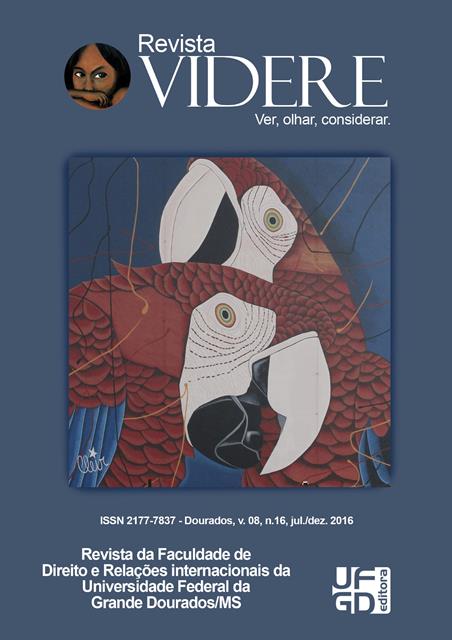Male desire as a construction of feminine sexuality in the regulation of prostitution
Keywords:
Women, politics, prostitution, regularization.Abstract
In current times, the central states have been dedicated to the debate of prostitution. However, this debate is based on international forums that have the concern of fi nding other solutions to the problem of public health or, also, international borders, that is, the subject of prostitution thus becomes a condition of secondary, already Which is the result of discourses concerning HIV control or traffi cking in human beings for subsequent commercial sexual exploitation and / or illegal immigration. In this sense, central states have only been able to defi ne concepts about the exercise and exploitation of sexuality, as well as to establish theories of discipline and / or regularization and perhaps prohibition of prostitution. It nevertheless forgets that prostitution is the result of a choice based on elements prior to its practice, whether it is forced or free, and therefore such discourses set forth by the central States do nothing to ensure a diff erent future for These women who ‘freely’ have opted for prostitution, and do not discourage the practice of future sexual exploitation of children and adolescents, that is, the concern of States with regard to the phenomenon of prostitution is, in modern times, Which promotes a true condemnation and why not talk about the invisibility of the citizen in prostitution. There is a fallacy of the Democratic State of Law, since it, at least as far as prostitution is concerned, has been shown to be a sponsor of violence, since it does not insure and off end civil and political That all citizens are owners by right. The importance of this work lies in the fact of observing the discourse around the construction of female sexuality when regulating prostitution. Is this discourse based on the protection and recognition of the agents involved in the said practice or does it only maintain the macho dictates that underlie the social construction of patriarchy? Hence, it is possible to identify the real existence of the autonomy of these female prostitutes when they are elected to prostitution, since it is only then and thereaft er that States, whether central or peripheral, can establish policies and debates to prevent the exploitation of these women and the control of child prostitution in the diff erent States.Downloads
Downloads
Published
How to Cite
Issue
Section
License
Authors must accept the publication rules when submitting the journal, as well as agree to the following terms:
(a) The Editorial Board reserves the right to make changes to the Portuguese language in the originals to maintain the cultured standard of the language, while respecting the style of the authors.
(b) Authors retain the copyright and grant the journal the right to first publication, with the work simultaneously licensed under the Attribution-NonCommercial-ShareAlike 3.0 Brazil (CC BY-NC-SA 3.0 BR) that allows: Share - copy and redistribute the material in any medium or format and Adapt - remix, transform, and create from the material. CC BY-NC-SA 3.0 BR considers the following terms:
- Attribution - You must give the appropriate credit, provide a link to the license and indicate whether changes have been made. You must do so under any reasonable circumstances, but in no way that would suggest that the licensor supports you or your use.
- NonCommercial - You may not use the material for commercial purposes.
- Sharing - If you remix, transform, or create from material, you must distribute your contributions under the same license as the original.
- No additional restrictions - You may not apply legal terms or technological measures that legally restrict others from doing anything that the license permits.
(c) After publication, authors are allowed and encouraged to publish and distribute their work online - in institutional repositories, personal page, social network or other scientific dissemination sites, as long as the publication is not for commercial purposes.



















